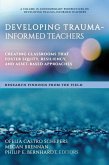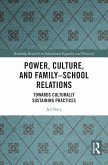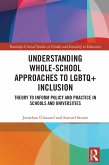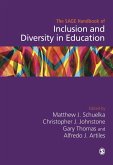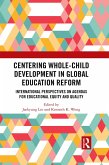Beyond the Schoolhouse introduces eight paradigm shifts that are urgently needed to challenge inequities in education and improve the conditions for historically marginalized school children. The book provides educators and scholars with actionable strategies to shift the paradigm from schools alone to engaged partnerships with families and communities. Too many educators enter the profession with an incompatible paradigm, one that asks educators to resolve the problems facing school children from behind the closed doors of the school. The book offers a new paradigm, one that opens the power of partnerships to improve the conditions for school children from within and beyond the walls of the schoolhouse.Drawing thoughtfully on leadership theory, current research, and evidence-based practice, the author engages practitioners and scholars in a spirited and candid conversation about why partnerships with families and communities are needed in this era of rapid cultural change and soaring inequalities. The book features scenarios from the field along with lessons learned on the pitfalls and possibilities embedded in the paradigm shifts. The scenarios reveal how the partners leveraged their power to disrupt historical patterns of racism, classism, and nativism. The book offers a compelling analysis of the power of school, family, and community partners to embrace dramatically different paradigms for schooling. With anecdotes and illustrations, the author invites readers to consider their role in engaging in meaningful partnerships that reflect the community's best hopes for the education of their children. Her narratives offer a deeply rooted understanding of the possibilities and pitfalls of school, family, and community partnerships in a diversity of settings, including urban, rural, and tribal schools and systems in the U.S. and abroad.The chapters build hope and a realistic optimism that engaged partners can leverage their talents and resources and work together to bring best practices to scale for the benefit of children of diverse identities, cultures, and ethnicities. Chapters contain strategies and tools to tackle the growing inequalities which keep far too many children on the margins of schooling and furthest from justice and equity. Strategies include equity-focused protocols, structured questions for dialogue in virtual and face-to-face settings, and resources for extended reflection. The book may be useful for scholars in academic circles, principal and teacher preparation providers, novice and experienced educators and administrators, and the allies, school board members, and elected officials who are invested in enriching the education and well-being of school children and the families and communities they serve.
Dieser Download kann aus rechtlichen Gründen nur mit Rechnungsadresse in A, B, BG, CY, CZ, D, DK, EW, E, FIN, F, GR, HR, H, IRL, I, LT, L, LR, M, NL, PL, P, R, S, SLO, SK ausgeliefert werden.




